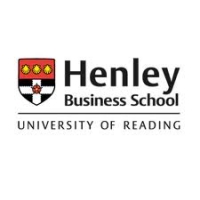






The ICMA Centre’s financial engineering degree is highly respected by quantitative analysts and their employers. The credit crunch and subsequent events have emphasised the need to develop better pricing and better hedging models for all complex products. The practical and quantitative skills that you will develop on the ICMA Centre’s Financial Engineering MSc will equip you to meet this challenge. Our compulsory modules provide a firm grounding in probability theory, stochastic calculus, derivatives pricing, quantitative and numerical methods, structuring products, volatility analysis, and the modelling of credit, equity, foreign exchange and interest rate derivatives. We also provide a thorough training in C++ and other programming tools. Optional modules will allow you to focus on risk analysis, portfolio management, designing trading strategies or econometric analysis. This newly structured degree aims to further enhance the strong reputation of its precursor – the MSc in Financial Engineering and Quantitative Analysis, that was established in 1999. A good background in mathematics is required or acceptance to this programme – see entry requirements
| Number | Duration |
|---|---|
| 1 | year |
Many of our financial engineering graduates are now working as Quants in large London banks and other financial institutions. Others have pursued PhDs and have successful academic careers. Financial instruments are becoming ever more sophisticated, so graduates that understand complex modelling techniques are always in great demand. The high quantitative content of this programme opens many doors to a wide range of careers. You could structure and develop new debt or equity solutions to meet clients funding and hedging needs, or you could become a proprietary trader in exotic derivatives, or a software specialist or a quantitative analyst supporting the traders. There are excellent opportunities on the buy-side, with hedge funds and investment institutions, as well as in investment banking and in software analytics. Opportunities in quantitative research, or with a rating agency, are among the many other attractive alternatives. Outside of mainstream banking and investment, you might also consider firms involved in commodity and energy trading, or the treasury divisions of leading multinationals and management consultancies. For more information regarding graduate destinations, please visit www.icmacentre.ac.uk/careers.